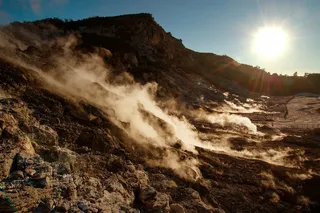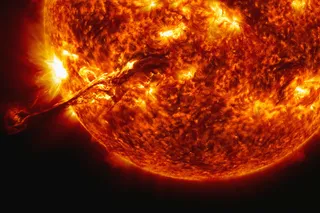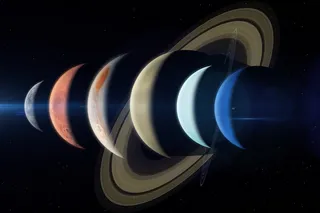The way some of the media report on climate change can be simply stunning. For example, an opinion piece in The Financial Post has the headline "New, convincing evidence indicates global warming is caused by cosmic rays and the sun — not humans". There's only one problem: that's completely wrong. In reality the study shows nothing of the sort. The evidence, as far as the limitations of the experiment go (that's important, see below), do not show any effect of cosmic rays on global warming, and say nothing at all about the effect humans are having on the environment.
What did you do, Ray? OK, first things first: why should we even think cosmic rays might affect climate? There are several steps to this, but it's not too hard to explain. We know that clouds form by water molecules accumulating on seed particles, called condensation nuclei. The physical processes are ...














